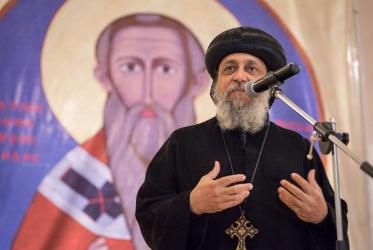Displaying 101 - 120 of 332
In Nigeria, WCC workshops focus on human rights
04 December 2017
Carrying the cross without fear
12 April 2017
From Bethlehem, WCC general secretary: “Together we are stronger”
08 December 2016
WCC congratulates new UN secretary general
21 October 2016
Grand Imam calls for collaboration against violence and poverty
06 October 2016



